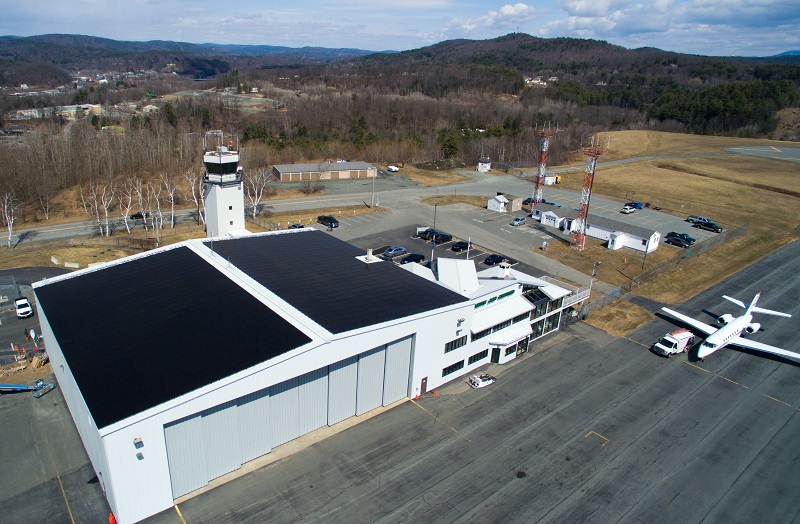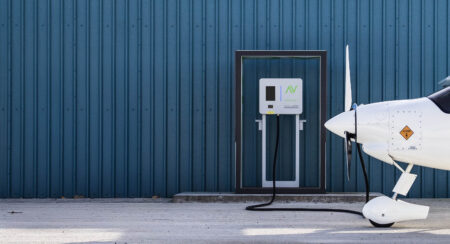Granite Air Center, a member of World Fuel Services Air Elite Network, has long believed in the importance of doing what they can to reduce their environmental impact.
The company demonstrated its commitment in 2018 by installing a 200-kilowatt solar array at its facility, the largest solar array in the City of Lebanon, New Hampshire at the time. The company continues to lead the way by achieving carbon neutrality for all of 2019.
“World Fuel applauds Granite Air’s leadership in sustainability,” said Darren Fuller, vice president, business development at World Fuel Services. “Many aviation companies are taking a wait-and-see attitude to decarbonizing. Still, visionaries like Granite Air see sustainability as good for the environment and a critical business imperative. We are honored we can support them in their journey with Carbon Offsets and Sustainability Programs.”
Granite Air was able to achieve this goal by purchasing carbon offsets to make up for its Scope 1 and Scope 2 carbon emissions. Scope 1 emissions include all direct emissions from the company’s operations, such as heating the buildings, operating vehicles and equipment, etc., while scope 2 emissions primarily include the carbon footprint of the production of electricity consumed by the company.
The company hopes to achieve Scope 3 carbon neutrality in the coming years. Jason Archambeault, the company’s co-owner and COO says Scope 3 carbon emissions are a much bigger challenge. “Scope 3 emissions are much more involved to calculate as you need to include every indirect emission related to the business in any way, right down to the miles driven by employees to get to and from work, for example. But we hope within the next couple of years we will be able to meet that goal.”
“We are excited about achieving this milestone. In addition to being good stewards of the environment we feel it is good business,” said Greg Soho, Granite’s CFO and other co-owner. “We will continue to look for ways to reduce our environmental impact.”
The company is working towards converting much of its equipment and vehicles to electrically powered equipment to further reduce emissions at the source, in addition to improvements such as LED lighting to reduce direct energy consumption.





